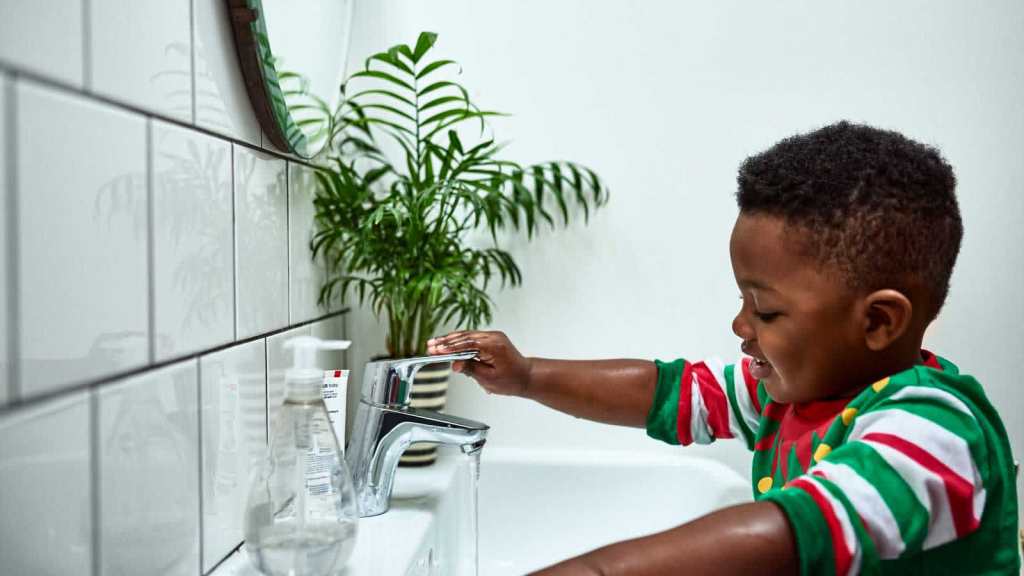Manging the current coronavirus pandemic as an adult can feel scary, so imagine seeing in through the lens of a child. And with all of the COVID-19 related chatter going on online and in the news, it’s important that you have a conversation with your kids to reassure them.
We turned to child and family therapist, Ray Medhora, to find out the best way to tackle this tough subject. According to Medhora, the most important thing is to remain calm yourself as your child will be looking to you for cues.
“Our child will understand the world by looking to us first,” he told TheLatch—. “If we are panicking, they will think there is cause for panic. If we want to model a calm response to something scary, we need to show them how to do it first.”
When answering questions your kids might have, don’t volunteer too much information that could scare them.
“Depending on your child’s age, knowing too much is unnecessary and frightening,” says Medhora. “So ask yourself — what do they actually need to know right now to be safe? And minimise the number of facts you share with them. They do need to know that you will be able to keep them safe and that things will be OK.”
While younger children might only need to be told limited information to explain certain changes in their daily routine, older kids will need further details.
“For older kids, we could be talking about harm minimisation and the fact that not everyone knows if they are sick or not,” said Medhora.
“Again, a major point here should be that we are erring on the side of caution and that this could help us keep each other safe. It doesn’t mean that everyone is unwell or that anything worse will happen to people who are unwell.”
Don’t be afraid to use outside sources to help you explain the importance of things like handwashing to your kids. There are a bunch of YouTube videos that explain how germs can make you sick and Peppa Pig even has a handwashing song that could be helpful for younger children.
“You could use aids such as child-orientated videos, infographics or stories which help kids understand that while some things are changing, there are also some things are not,” Medhora said. “Explain that there are reasons that we can’t go to school (should you be in quarantine), but there are lots of things that are the exact same and that things, in general, are safe and normal.”
Medhora says that reassuring your kids about what is in their control could also be helpful.
“Kids experience the world differently to us,” he said. “When big changes happen, and things feel out of control, kids feel powerless and anxious. Parents can remember this and ensure that they explain to kids that only some things are in their control.”
When it comes to having these conversations, the tone you use with your little ones is key.
“I would talk with parents about having multiple conversations, each with brevity, and make sure the tone of the conversation is correct and calming,” Medhora said. “The delivery of these messages is more crucial than the words themselves.”
Father-of-two, Andrew Connor, has recently been tested for COVID-19 after coming into contact with someone who had the virus. While he waits for the test results, he is currently in quarantine with his family. And, Connor has been as truthful as he can with his children.
“I’ve been honest and said that dad knows a man that has got this virus, so just to be careful I’m getting a doctor to test me too,” Connor told TheLatch—.
“I told them that he’s not feeling sick and will be okay and same with me. While I wait for the results, we can have running races, blow kisses and play soccer, but we can’t cuddle or kiss or jump on me just yet. They seem to get it and are non-plussed about it. I’ve told our son it’s not school holidays so he has to be in routine doing school type work etc.”
Ultimately you are the expert when it comes to your own children and you need to do what works best for your family.
“You know your child best, and will be best placed to decide how you have this conversation with your child,” Medhora said.
The current health crisis is evolving rapidly. If you suspect you or a family member has coronavirus you should call (not visit) your GP or ring the national Coronavirus Health Information Hotline on 1800 020 080.







